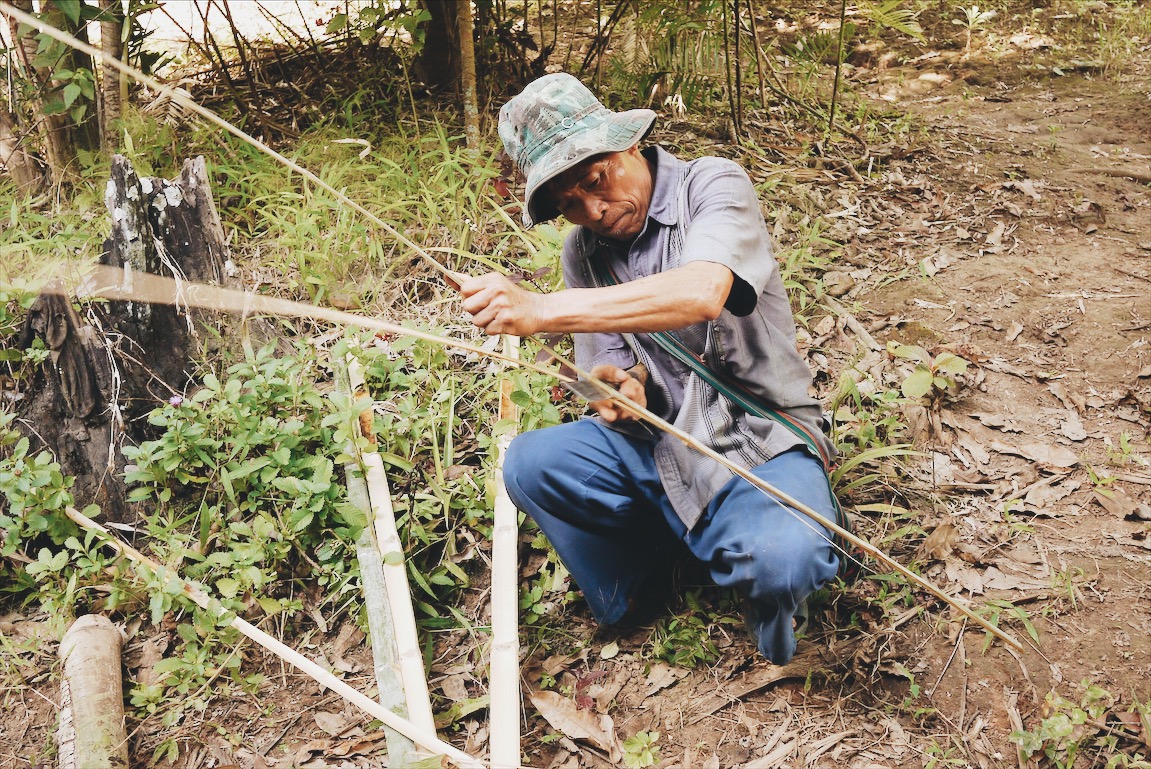Environmental conversations aren't only about major players.
In most ongoing conversations about the planet’s environmental issues, you’ll frequently hear the names of major actors: The United States Government, the Vatican, the oil industry, and the United Nations. These usually-controversial entities often stir up the debate of what should be given priority– economic growth or environmental protection?
Frequently absent from this discussion, however, are the people most in need of economic growth. People in poverty are the ones most affected by the environment. These are the rural poor. Their stories of growth and development bring something very important to conversations about the environment and economic development– proof that the two are not in conflict.
85% of people living in poverty around the world live in rural areas. Many associate the image of poverty in urban slums and overpopulated metro areas. Most often, however, global poverty looks like a subsistence farmer and his or her family’s challenge of survival.
Plant With Purpose works with rural farmers in seven different countries. Our experiences and interactions with the farmers remind us that people’s well-being is connected to their environment.

Haitian Hills Team members from Plant With Purpose Haiti survey the hills.
Without trees and with exhausted soil, crop growth becomes significantly diminished.
For families that rely on the land for their own food and a small income, this can be devastating. The most effective work I’ve seen done to help these populations grow out of poverty features environmental treatment and care as a central component.
Pierre is a farmer in Haiti. He admits that life is difficult, but it used to be much harder. “I didn’t know how to protect the soil,” he explained. As a result, cultivating enough of a harvest to support his four children was an increasingly difficult task. He began participating in sustainable agriculture workshops held by Plant With Purpose Haiti. “They taught me a lot of techniques like soil conservation, grafting, and pruning,” he recollects. Those techniques helped his farm thrive. “After the first cycle, I bought two goats with my savings. Thanks to God, now one of them is in gestation.”
Increased economic security and education removed the incentive for Pierre to return to old practices of deforestation, as sustainable agriculture became a new norm in his community. As that economic security helped protect the environment, the environment also helped provide more economic growth.
Stories like these are common among rural farmers all over the world who have adopted environmentally friendly practices. In Northern Thailand, Jataw attests to the impact planting trees has had on his life. “The trees I planted on my agroforestry plot provide me food and income,” he explains. “The trees planted in our community forest and in the village help to provide shade and bring water back to the area.”

Promoting the use of organic materials is a key component of Plant With Purpose's work.
A major myth is that the environment and economy must be at odds.
Rural farmers produce much of the food that the world lives off of, making them an integral part of the world’s economic and biological system. Their experiences also represent entrepreneurship, business, and economic dynamics at a foundational level.
Their stories remind us that ultimately, all of us live off of the land in some way. When we lose sight of the bigger picture and the importance of caring for that land, we suffer in many ways, including economically. A scarcity of resources can also lead to further environmental abuse.
As rural farmers overcome poverty, it creates a roadmap for how different economies around the world can grow effectively. It starts looking at the root causes of poverty. It requires making an effort to care for and protect the earth and its resources.

Mungubariko shows some of the growth from his most recent harvest.
Mungubariko has witnessed great change.
In Tanzania, a cabbage farmer named Mungubariko, explains the remarkable change he’s seen. “When you look at my farm today I can tell you that it didn’t use to be like this,” he explains from his thriving farm beside Mount Kilimanjaro. “There were no trees here, and no one in the community was in the habit of planting trees.”
“We started the first tree nursery in this area. We also learned about protecting the land with terracing, which has reduced erosion and also allowed us to grow a lot more crops. In just the last few years we have planted over 13,000 trees in this area. We have fruit trees of many kinds, and forest trees that grow tall and protect the land.”
“Now when I take my cabbage to the market people buy from me first because they know the food is organic. I even have buyers from Kenya who come to buy my vegetables. Because of what we have learned, I have also been able to grow so much more food so that I have enough money and also have money to help others.”
To see that kind of change occur at a global level would be incredible. Mungubariko and his story remind us that it is possible. To create even more change for farmers around the world, become a Purpose Partner!

















